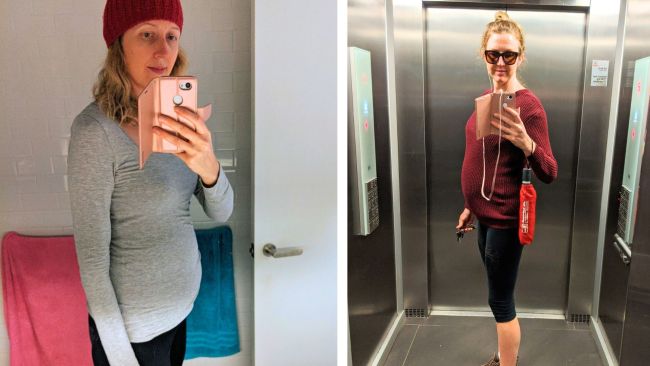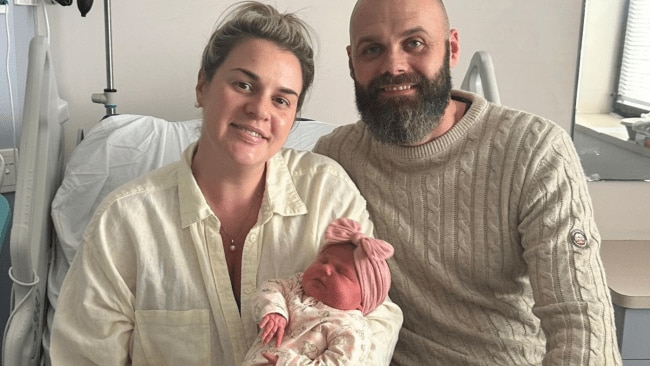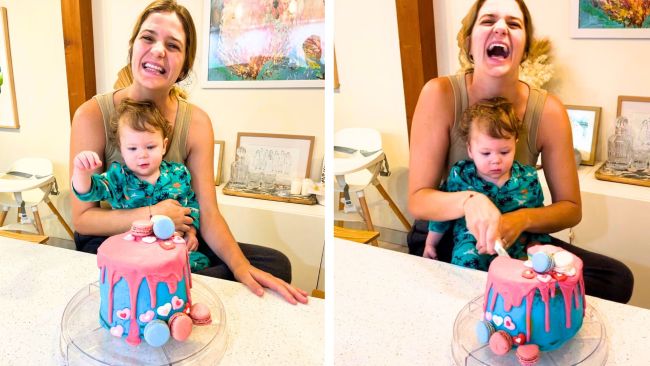Yes, men get perinatal depression too. I was one of them
"Your room may be dark but there are plenty of others in there with you. I'm so grateful I found the support I needed," Melbourne dad Matt tells Kidspot. Please note this article discusses sensitive topics.
Pregnancy
Don't miss out on the headlines from Pregnancy. Followed categories will be added to My News.
One in 10 dads will develop symptoms of perinatal anxiety and/or depression during pregnancy or after a baby is born.
And new data from Perinatal Anxiety & Depression Australia (PANDA) reveals that the number of new and expecting dads seeking perinatal mental health support has doubled.
Feelings men experience during this time are both physical and emotional.
85 per cent feel worried, and seven in 10 admit to feeling sad or tearful. Symptoms including feeling isolated (87%) and lacking confidence in becoming a parent (67%) are also common during the perinatal period, while two-thirds (61%) experience panic attacks.
The findings have been released during Men’s Health Week (June 12-18), to raise awareness of the mental health challenges dads experience during their partner’s pregnancy and the first year of their child’s life.
Want to join the family? Sign up to our Kidspot newsletter for more stories like this.
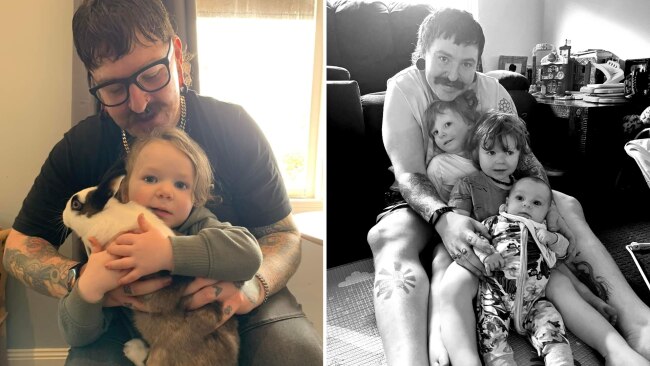
RELATED: My wife sensed something wasn’t right, I felt ashamed
Help is available, but many dads aren't aware
Help is available, but many new dads don't know where to turn to during such an emotional and challenging time.
Some dads aren't even aware of what they're going through.
Kidspot spoke to Melbourne dad Matt who was diagnosed with perinatal depression while navigating the traumatic births of his three children.
In his own words, he talks about what it was like, the diagnosis and what he learnt along the way.
He wants to encourage fathers who may be struggling with the arrival of a new baby to reach out for support and says it’s important for dads to know they are not alone.
RELATED: Newborn struggles: how to know when you need help
"My anxieties and fears of failure overwhelmed me"
I’m 36 and a father of three children aged four, two and eight months. My wife and I have been married for almost five years.
I have had mental health struggles since I was young. I am a child of divorce and held a lot of childhood trauma. My mother was diagnosed with breast cancer when I was 12 after we had just moved to a new and unfamiliar town where I knew nobody and had no support or friends.
I was diagnosed with ADHD and Autism 12 months ago and since then I have mourned the life I could have had if I had someone in my corner from a younger age.
I was really scared to become a dad. But meeting the love of my life and seeing her dreams of being a mother, along with her support and confidence in me encouraged me to want to become a dad.
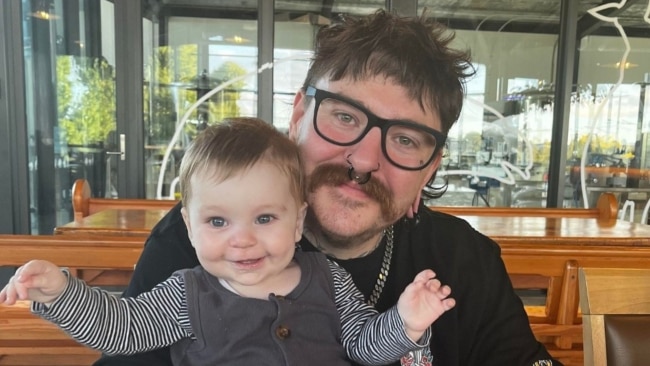
"I didn’t know this was something that could happen to men"
All three of my children’s births were traumatic for my wife and I, and my anxieties and fears of failure overwhelmed me after the births of my first two children. I was diagnosed with postnatal depression. I didn’t know this was something that could happen to men.
My wife was an absolute rock throughout it all and luckily we were able to find some light in the darkness in each other. We have always operated on the rule that together we will always be 100%. Even on days when I feel 20%, she will be the other 80% for me and our family. This is one of the leading reasons we have a house so full of love today.
I started seeing a clinical psychologist through my employer. I had been in and out of therapy since I was a child and never had found a therapist that I clicked with more than I did with this one. We had shared experiences in life, and I was really able to take on board her advice as it was advice that came from lived experience.
I'm such an advocate for not only therapy but finding the right therapist for you. A therapist is an intimate relationship much like a partner and if your values don't match up then it is likely you will quit therapy and not seek another.
After my ADHD and autism diagnoses, I’ve been able to mourn, grieve, heal, educate and find the right support. I’m confident in saying I’m now on the other side and beginning to thrive as a neurodivergent father, husband and human.
I still speak with my therapist when I feel the need to workshop emotions that I don't fully understand however mostly I communicate with my wife. I spend time with my children; even when they tickle my sensory issues it is still an absolute honour and privilege to be a father to my three incredible kids.
My advice to other parents
Talk it out!
Fill your bucket with love and be around people who bring you up, not pull you down. Don't be afraid to walk away from relationships or friendships that leave you feeling drained. Find like-minded communities online to workshop your emotions.
Utilise therapy (mental health care plans are incredible). Don't settle for the first therapist you find, do research and don't be afraid to reach out to therapists to find out a bit about them before requesting a referral through your GP.
Most important of all, be kind to yourself. Take comfort in knowing you aren't alone and if you feel like you have no support, contact PANDA or any of the other incredible and necessary resources available to you.
Your room may be dark but there are plenty of others in there with you.
There is still more work to be done to support men during this time
In light of the new research from PANDA, CEO Julie Borninkhof said it is encouraging to see more men engaging with PANDA’s Mental Health Checklist, but there is more work to be done to support men during their partner's pregnancy and the early stages of their baby’s life.
"One in 10 calls to the PANDA Helpline are made by men, who engage with the service seven times on average, via email, text message or phone call. Parenthood is generally a shared experience between mums and dads, but we often overlook that new dads feel the same uncertainty with their changing responsibilities," Ms Borninkhof said.
"Equal recognition of mental health experiences among fathers is important for encouraging them to seek support, so they can be more present for their baby and partner."
To support new dads, PANDA has a range of resources available and works closely with SMS4dads, a free text service that sends text messages with ideas, tips, advice, and information straight to their phones.
"SMS4dads came about because fathers told us that the health system doesn’t provide services that speak directly to dads," said Richard Fletcher PhD, Associate Professor, Fathers and Families Research Program, School of Health Sciences University of Newcastle.
"SMS4dads sends brief text messages that support men in their role as fathers and increases awareness of their influence on baby’s brain development. It also provides tips on working collaboratively with their partner and checks in on their wellbeing and offers professional support if needed."
Anyone needing support during pregnancy or post-childbirth can call the PANDA Helpline on 1300 726 306 Mon to Sat, 9am - 7.30pm AEST/AEDT, including public holidays.
For more information or to access PANDA’s Mental Health Checklist, visit panda.org.au.
More Coverage
Originally published as Yes, men get perinatal depression too. I was one of them





